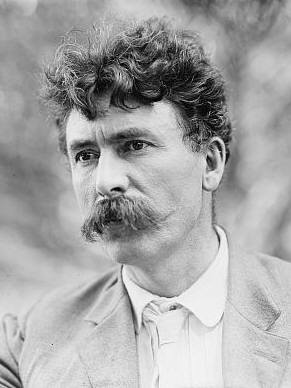In days like these one can accept or assume no higher or better mission than that of peace messenger, a personal messenger of peace and understanding among the nations.
The surest way to achieve understanding is by personal contact and conversation. There is a story told by Charles Lamb and his friend Steele, as they sat in their London coffeehouse. A stranger entered. Lamb glared at him, then growled to Steele, “I hate that man.” Steele laughed, “Why, you do not know him, you never even saw him before.” Lamb replied in a more reflective tone, “Perhaps that is why I hate him. If I really knew him, I probably would rate him as a jolly good fellow.”
During the Great War many soldiers were taken prisoner by the opposing army. These prisoners were sent afar into military camps and prisons. They were fed, sheltered and, if wounded, had medical care. They had in short everything but freedom. Incidentally, they and their captors got acquainted, and although they had been taught to hate each other and to seek each other’s destruction, they now were subjected to other influences. They got acquainted, they began to understand each other. Understanding ripened into respect and respect into friendship. There can be no doubt that thousands of lifelong friendships were in that way founded during the war, all evidencing the great principle that understanding is the best remedy for misunderstanding.
Of course, such work would be less expensive and more effectual if brought about by peaceful activities, and this is the wise thought which is at the back of all such undertakings as international expositions, world tours, Rhodes Scholarships, Olympic Games, Peace Ambassadors and whatever tends to make foreign travel easy and contact with foreign countries the great privilege within the reach of all that have moderate means. If I may speak of my personal experience and observation, I have never yet known a man to go and live with a foreign nation without wholly reforming his previous concept of them, especially if that appraisal had been unfavorable. Every American student who spent a few years in France or in Germany came back saying, “I have learned to love those French or those Germans now that I understand them.” Every Rhodes Scholar goes back from Oxford with a new and high appreciation of the old land and something like affection for its sterling qualities and even its eccentricities. I know of several men who spent years among the Negro tribes of Africa and came back in each case with a deep-rooted admiration of these so-called “primitives” and a real personal affection for many, if not all, of their black acquaintances.
Fifty-odd years ago I went West to live on the plains of America in contact with the North American Indians. I was attracted by the glamor that Fenimore Cooper and other romanticists had shared about the red man. And yet I was warned and distrustful, because of countless alleged histories of Indians’ cruelty, Indian massacres, Indian cold-blooded atrocities. I had to live with them many years and accumulate a library of thousands of records, talk with hundreds of old-timers, who knew the truth, before I learned that all these stories of wickedness and cruelty were pure fabrications, wicked slanders, invented by the white men to justify the invaders in seizing the Indian lands and dispossessing him of all his property, his gain, his horses, his liberty, as well as his home and children.
I came at last to the same conclusion as General Miles, Buffalo Bill and a score of outspoken leaders, who assured me that the Indian was the most heroic and noble type the world has ever seen. He was without degrading vice until the white man introduced whisky, horrible diseases and the love of money, and would easily have resisted the white invader, had he been equipped with the white men’s destructive weapons and boundless resources.
The highest development of the red man’s culture was seen in Peru. We know now that under the Incas, those red men faced and solved all the great economic and social problems that are tormenting us today. We that are troubled over these great issues believe that we can most quietly and quickly get light and practical guidance by studying these methods and results of the great red men of the past. It is with this as my compelling thought and motive that I am going about from land to land proclaiming the methods and delivering the gospel message of the great red men of America.
